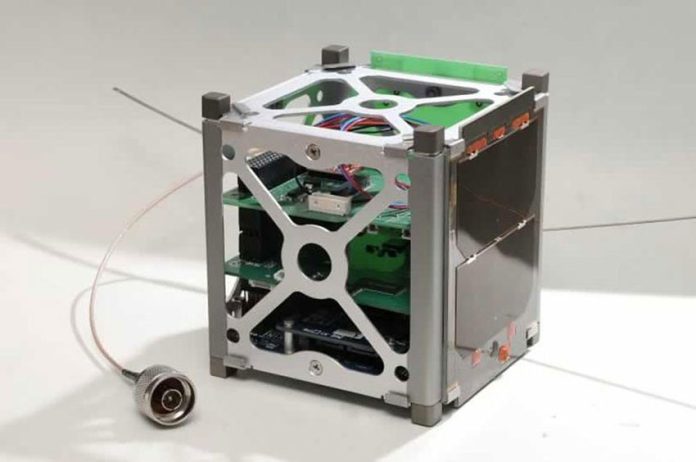NASA has approved the design of a nanosatellite developed by students and professors at the Popular Autonomous University of Puebla (UPAEP).
Andrés Martínez, an advanced exploration systems executive at the United States space agency, told a press conference this week that the quality of the design of the AztechSat 1 satellite, which measures just 10 cubic centimeters, is on par with those of NASA engineers.
Approval of the design followed an exhaustive inspection process.
“Revision is important in our projects because we have to be certain that the design is going to comply with the requirements of the mission. An extra revision was required because in July, of the 12 areas [assessed], nine passed [inspection] and three required a little additional work,” Martínez said.
The NASA executive explained that a panel made up of the astronaut José Hernández and three NASA engineers, among other specialists, unanimously agreed that the UPAEP team had sufficiently improved the satellite’s design in the areas required and consequently met the space agency’s stringent specifications.
AztechSat 1 is now set to be launched into space in October 2019 for a mission of just over 100 days during which it will be fully traceable as it sends data back to earth.
Carlos Duarte, a representative of the Mexican Space Agency (AEM), congratulated and praised the students and professors who worked on the satellite project.
“The satellite will be a complete success when it’s launched next year and it’s the start of many more projects. The UPAEP is providing an example at the national level about how to develop space projects,” he said.
“The explosion of space development in Mexico is thanks to the interest . . . of the federal government which has promoted these projects, such as the AztechSat 1, which was partially funded by the AEM-Conacyt [the National Council for Science and Technology] fund,” Duarte added.
Fernando Rodríguez Contreras, an electronics student who participated in the project, said it was a great honor to represent Mexico and to be a pioneer in the field of satellite development in the country.
“We take our work very seriously and put a lot of passion into it so that Mexico as a country moves ahead . . .” he said.
Source: Notimex (sp)
